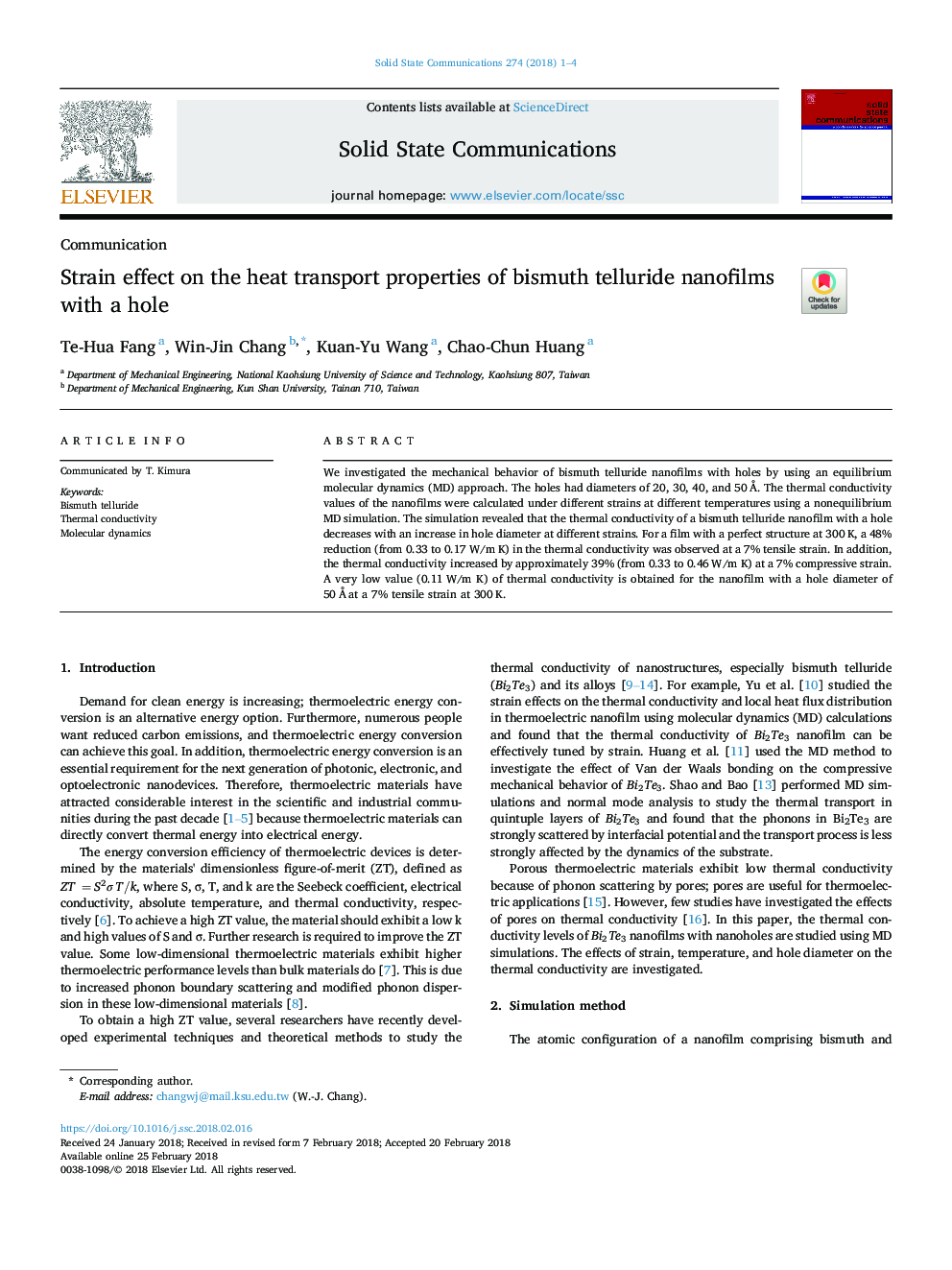| Article ID | Journal | Published Year | Pages | File Type |
|---|---|---|---|---|
| 7987863 | Solid State Communications | 2018 | 4 Pages |
Abstract
We investigated the mechanical behavior of bismuth telluride nanofilms with holes by using an equilibrium molecular dynamics (MD) approach. The holes had diameters of 20, 30, 40, and 50â¯Ã
. The thermal conductivity values of the nanofilms were calculated under different strains at different temperatures using a nonequilibrium MD simulation. The simulation revealed that the thermal conductivity of a bismuth telluride nanofilm with a hole decreases with an increase in hole diameter at different strains. For a film with a perfect structure at 300â¯K, a 48% reduction (from 0.33 to 0.17â¯W/m K) in the thermal conductivity was observed at a 7% tensile strain. In addition, the thermal conductivity increased by approximately 39% (from 0.33 to 0.46â¯W/m K) at a 7% compressive strain. A very low value (0.11â¯W/m K) of thermal conductivity is obtained for the nanofilm with a hole diameter of 50â¯Ã
â¯at a 7% tensile strain at 300â¯K.
Related Topics
Physical Sciences and Engineering
Materials Science
Materials Science (General)
Authors
Te-Hua Fang, Win-Jin Chang, Kuan-Yu Wang, Chao-Chun Huang,
